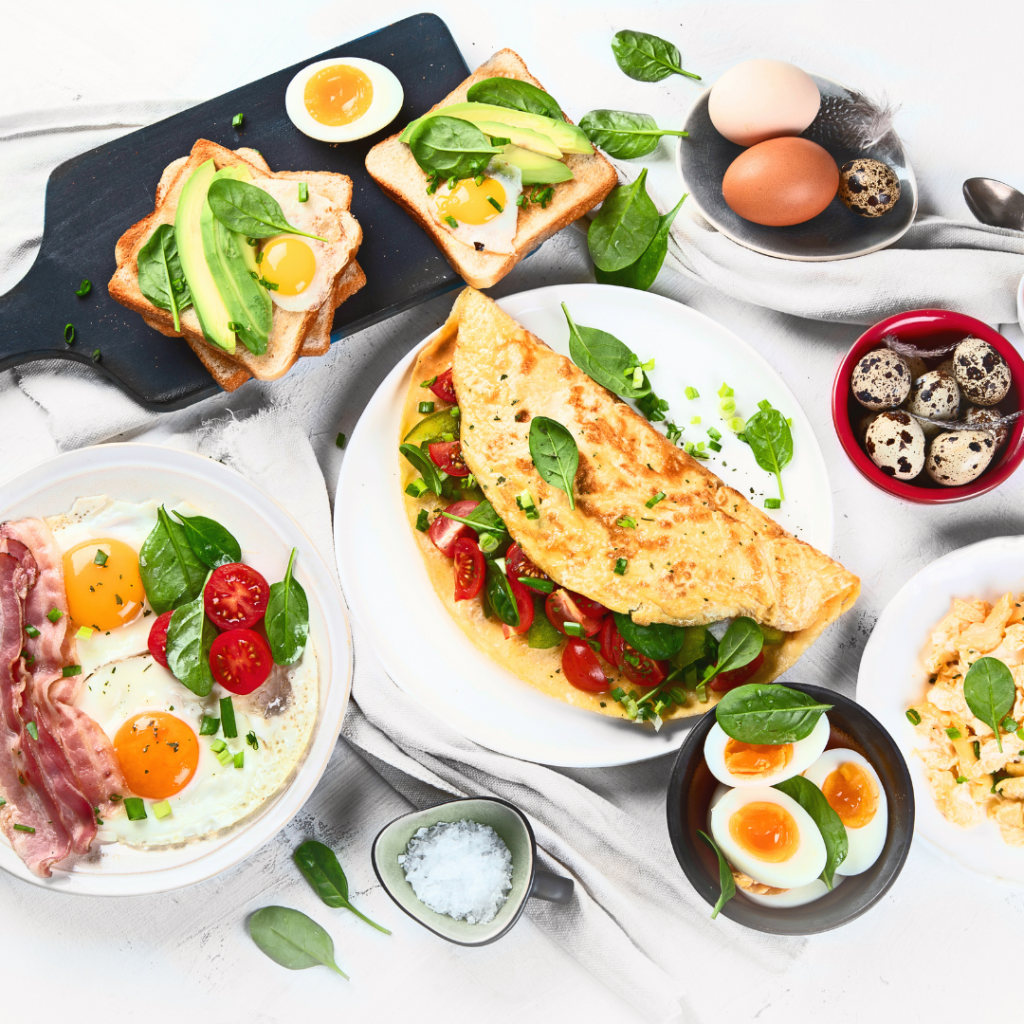Many of you have probably heard about the Avian Flu outbreak that we are currently experiencing. The current death toll on our nation’s poultry industry is currently about 36 million birds. Some grocery stores are already feeling the affects of this devastating loss in our supply chain. With so many birds gone, and inflation rising, eggs and chicken could become difficult to find or afford in the near future, so this week we are talking about ways to prepare, and maybe ways to substitute them in our cooking.

Freezing Eggs
There are several ways to freeze eggs, so that you can store them for longer. If you have room in your freezer, you can make egg casseroles or scrambled eggs ahead, and then freeze them in disposable casserole dishes. This can save time getting breakfast ready too, because you just need to reheat on the go!
If you are looking to be able to use the eggs in other recipes later, The Purposeful Pantry has a step by step guide to freeze eggs using silicone molds or muffin tins!
Dehydrated Eggs
Some people do this on their own, but it’s not highly recommended due to the risks of contamination and salmonella poisoning. But you can find them in different preparedness stores, grocery stores, and online. Here are some online suppliers you can check out:
Farm Fresh
Another great way to combat shortages is to either have your own chickens, or make friends with those who do! It is estimated that about 13 million Americans are raising their own chickens (Cooped Up Life, 2022) In addition to being able to have a more stable source, farm-fresh eggs have more health benefits and nutritional value than store-bought, mass raised chicken eggs. “Studies show that farm fresh eggs have less cholesterol and saturated fat than those purchased from the store. Additionally, they also contain 25% more vitamin E, 75% more beta carotene and up to 20 times more Omega-3 fatty acids.” (Backyard Boost, 2021)

Egg Replacements
We can also use replacements for eggs in different types of recipes. PCC Markets offers these options to replaces eggs in your recipes:
VINEGAR & BAKING SODA
Replace 1 egg with: 1 teaspoon baking soda, 1 tablespoon vinegar
Bakes best in: Cakes, brownies, quick breads
Notes: Combine separately, then add to recipe to add loft to fluffier baked goods.
UNSWEETENED APPLESAUCE
Replace 1 egg with: 1/4 cup applesauce
Bakes best in: Muffins, brownies, cakes, bars
Notes: Avoid using more than 1 cup total in any recipe as it can create a rubbery texture.
PLAIN OR VANILLA SOY YOGURT
Replace 1 egg with: 1/4 cup yogurt
Bakes best in: Muffins, cakes, bars
Notes: Can be heavy and works best if beaten well before adding to other ingredients.
SILKEN TOFU
Replace 1 egg with: Whirl 1/4 cup silken tofu in blender, adding water until smooth.
Bakes best in: Pies, quick breads, muffins, dense cakes
Notes: Can be very heavy. Avoid using in recipes that call for multiple eggs. Baked goods will not brown as deeply.
RIPE BANANA
Replace 1 egg with: 1/4 cup mashed banana
Bakes best in: Quick breads, muffins, cakes
Notes: Very ripe bananas will leave a hint of flavor and increase sweetness. Can create a rubbery texture.
GROUND FLAXSEED
Replace 1 egg with: Stir together 1 tablespoon ground flaxseed in 3 tablespoons water until thick and gelatinous.
Bakes best in: Brownies, cookies, breads
Notes: Adds an earthy, nutty taste and can create a firm or chewy texture, best with hearty baked goods.
There are also “egg replacement” products at various stores that are vegan that can be used to replace eggs in your recipes.
Facing the Future with Faith
The Lord has told us, “If ye are prepared, ye shall not fear.” (D&C 38:30) The days ahead may be challenging, but as we prepare, and are aware to the situations around us, we can make a plan to improve our future. Our Heavenly Father will bless our efforts.
Resources:
- The Horrific Bird Flu that has Wiped Out 36 Million Chickens and Turkeys Explained, Vox, May 5, 2022
- A worrisome new bird flu is spreading in American birds and may be here to stay, NPR, April 9, 2022
- 9 Ways to Preserve Eggs, Purposeful Pantry
- Backyard Chickens Statistics That Will Surprise You, Cooped Up Life, 2022
- Benefits of Farm Fresh Eggs, Backyard Boost, 2021
- Doctrine & Covenants 38:3

